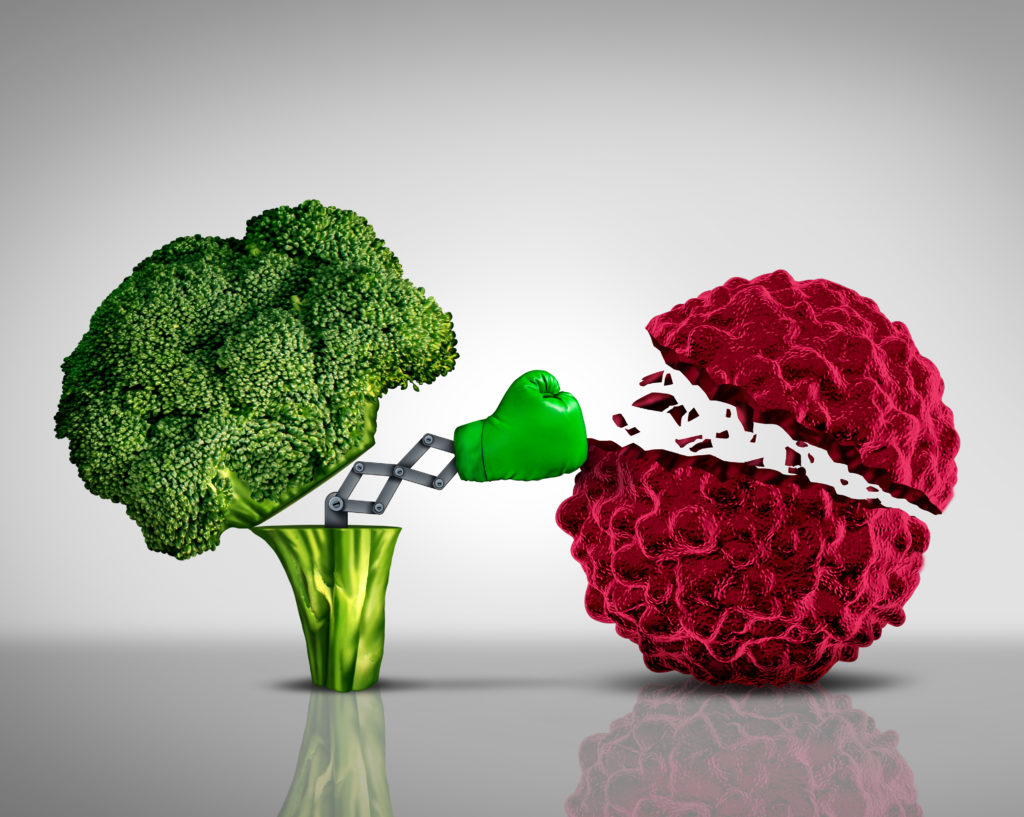
June is Survivorship Month
Knowledge is power and, when it comes to cancer prevention, treatment, and survivorship, we thirst for information. So do nutrition researchers. The headlines below represent some of the cancer studies related to nutrition that have made news in the last month and, most importantly, what they mean to you and your family during this Cancer Survivorship Month!
A Dietitian’s Take – We know that early-onset colorectal cancer (before age 50) has increased in recent years, but the reason behind this increase has not been significantly studied. This research indicates that sugar-sweetened beverage intake in adulthood and adolescence is associated with a higher risk of developing early-onset colorectal cancer. It’s important to note that the participants in this study are all women, so while the findings may be applicable to men, we do not have the data to show this at this time. Finally, one dietary factor will rarely, if ever, be the sole cause of increased risk of the development of cancer, so always keep in mind that the goal is to build a healthy dietary pattern overall.
What can you do? – It’s never a bad idea to reduce or eliminate intake of sugar-sweetened beverages, as they contribute calories and sugar to the diet without providing nutrients. Sugar-sweetened drinks can be replaced with 100% fruit or vegetable juice, low- or non-fat milk, unsweetened tea, coffee, or old-fashioned water! And, while you are at it, unless you have a medical condition that prevents you from doing so, try to get more fruits and vegetables and other plant-based foods high in fiber. Your gut will thank you!
A Dietitian’s Take – This study showed that women who had a high body mass index (BMI) (a weight-to-height measurement used to classify overweight, obesity, and severe obesity) in childhood have a lower risk for premenopausal and postmenopausal breast cancer. Again, this study population consisted only of women (sorry, guys!) and the results are a head scratcher. We know that overweight and obesity is linked to a higher risk of developing cancer in adulthood. We also know that those who are overweight or obese in childhood may be at a higher risk of being overweight or obese in adulthood. So, it does not stand to reason that there would be a protective effect of having a higher BMI on breast cancer later in life. I would note that these types of studies are not designed to determine cause and effect. Rather, they identify associations and, oftentimes, when we have more study, we can determine that the association identified is not real.
What can you do? – Sometimes scientific study is less of a straight line and more of a curvy one, so I always encourage folks to routinely do these 10 behaviors recommended by the American Institute of Cancer Research. It’s important to emphasize that this study is not license to not do these everyday lifestyle habits that encourage healthy minds and bodies, like being physically active and eating healthfully, especially because excess body weight is associated with an increase in other health conditions, such as hypertension, diabetes, and risk of cardiovascular disease.
A Dietitian’s Take – This study, unlike the previous one, is more consistent with the totality of the scientific knowledge that we have to date. It shows that being obese, as measured by body fat, waist and hip measurements, and BMI, increases the risk of developing 10 of the most common cancers (endometrial, uterine, stomach, gallbladder, liver, kidney, pancreas, colon, bladder and breast).
What can you do? – Lauren Teras from the American Cancer Society summarizes this very well in the article when she says, “My advice is to find a plan that works for you and stick with it until it becomes a habit,” she suggested. “To increase your physical activity, do what sounds fun to you. Eat a diet that is customized to your preferences, but includes fruits, vegetables and whole grains. Limit portion sizes.”
A Dietitian’s Take – This study identifies that rising blood sugar levels increasingly impact cancer risk and that high blood sugar raises the risk of developing pancreatic cancer later in life. This is not a surprising finding, as insulin is produced in the pancreas. Further, the combination of high glucose and BMI was associated with even more risk.
What can you do? – Just as eating sugar doesn’t cause or feed cancer, it does not cause diabetes. Some risk factors cannot be controlled, like family history or race/ethnicity. What you can do to reduce your risk of developing diabetes is maintain a healthy weight, be physically active, and manage pre-diabetes if you are diagnosed.








